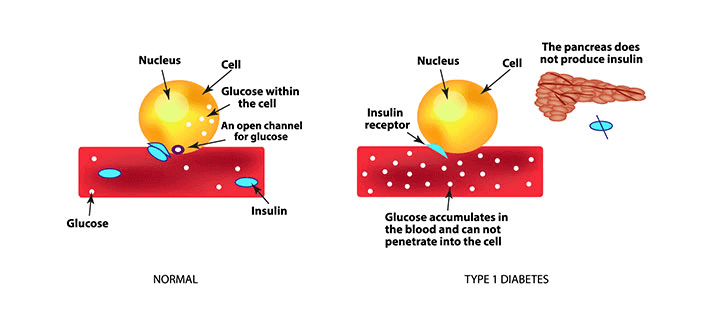WHAT IS TYPE 1 DIABETES?
An individual is said to have type 1 diabetes when his/her defense system (immune system) destroys the insulin-producing beta cells in the pancreas. Insulin is a hormone that assists in the movement of sugar (glucose) into the cells of the body which use it for the production of energy.1
When the insulin-producing cells of the body become dysfunctional or are destroyed by the immune system, the normal production of insulin is hampered. In the absence of insulin, glucose is unable to enter the cells of the body.1

This eventuality causes two things1:
- The cell cannot utilize the blood glucose for converting it into energy, thereby starving the cells.
- Since blood glucose is unable to move into the body cells, there is an excess buildup of glucose in the blood.
Both these factors are responsible for high blood glucose resulting in type 1 diabetes.1
Type 1 diabetes represents the most common form of diabetes in childhood. Globally, the occurrence of type 1 diabetes continues to increase rapidly; it has serious short-term and long-term complications.2
You will be surprised to know that every year nearly 75,000 new children are diagnosed with type 1 diabetes. There are approximately 97,700 children with type 1 diabetes in India.2